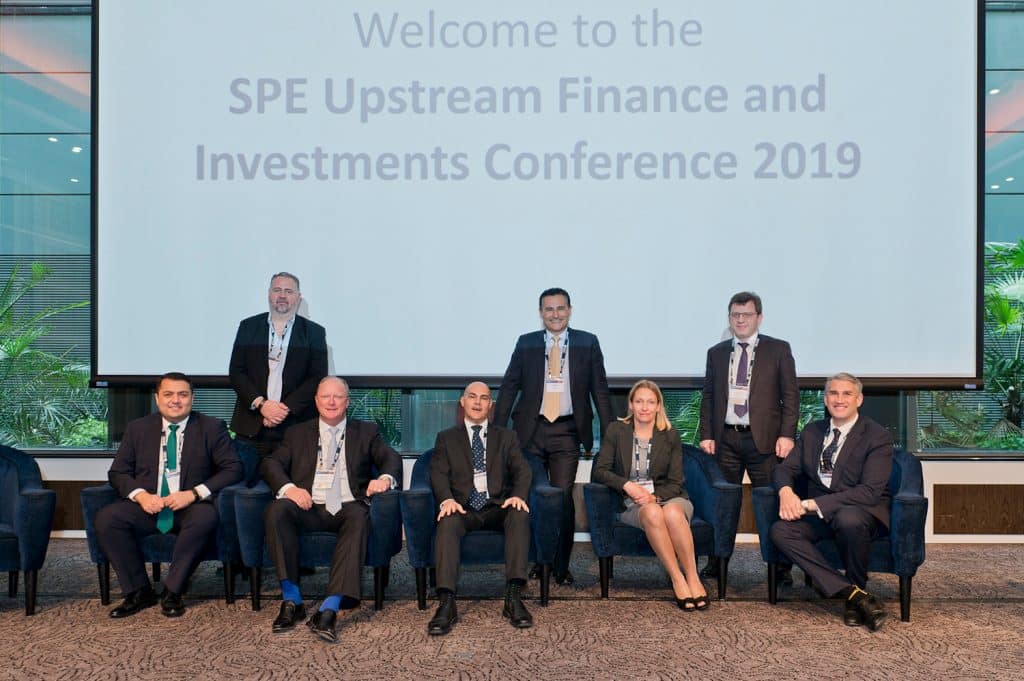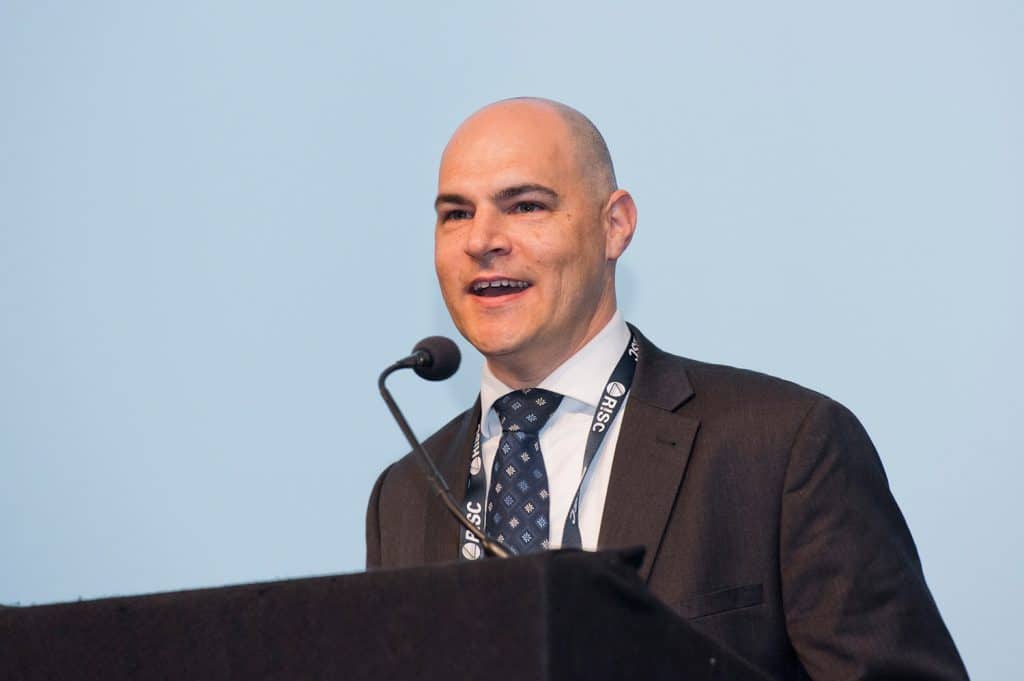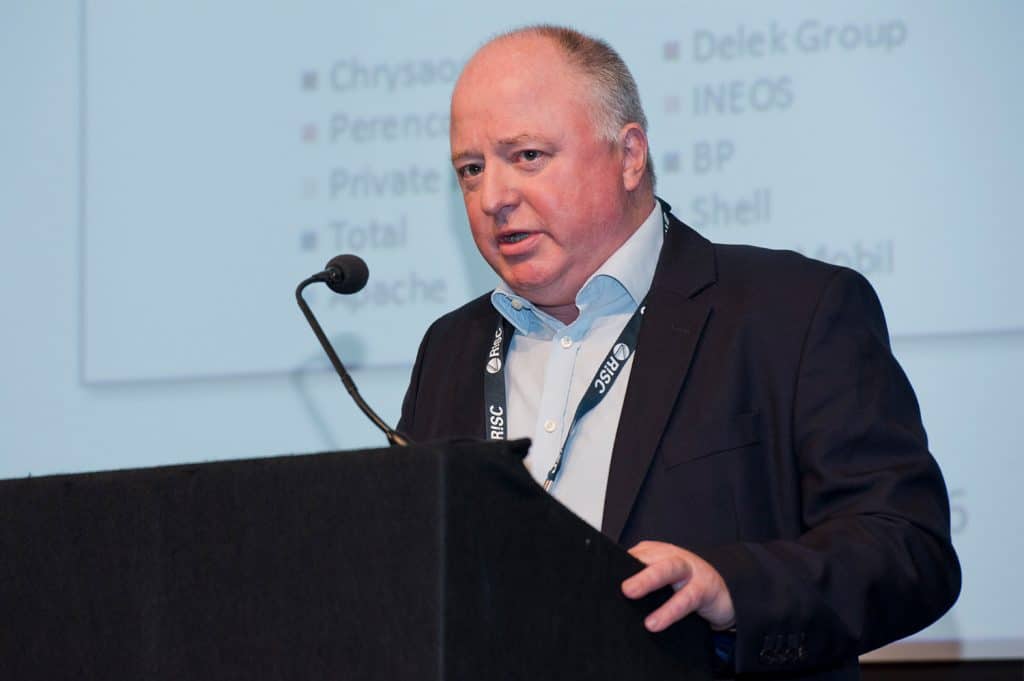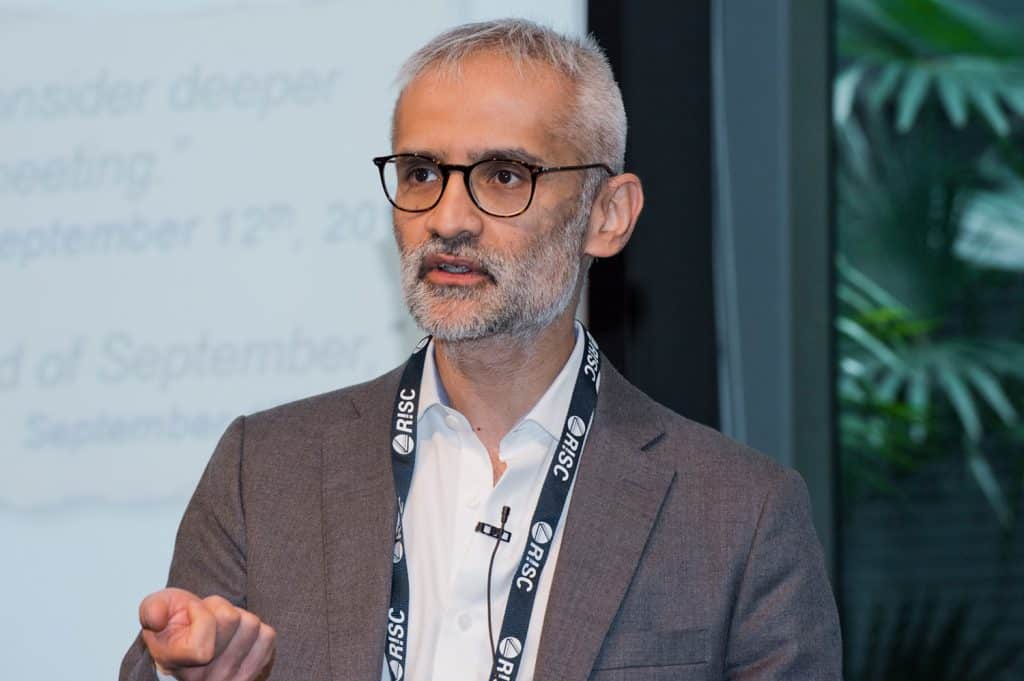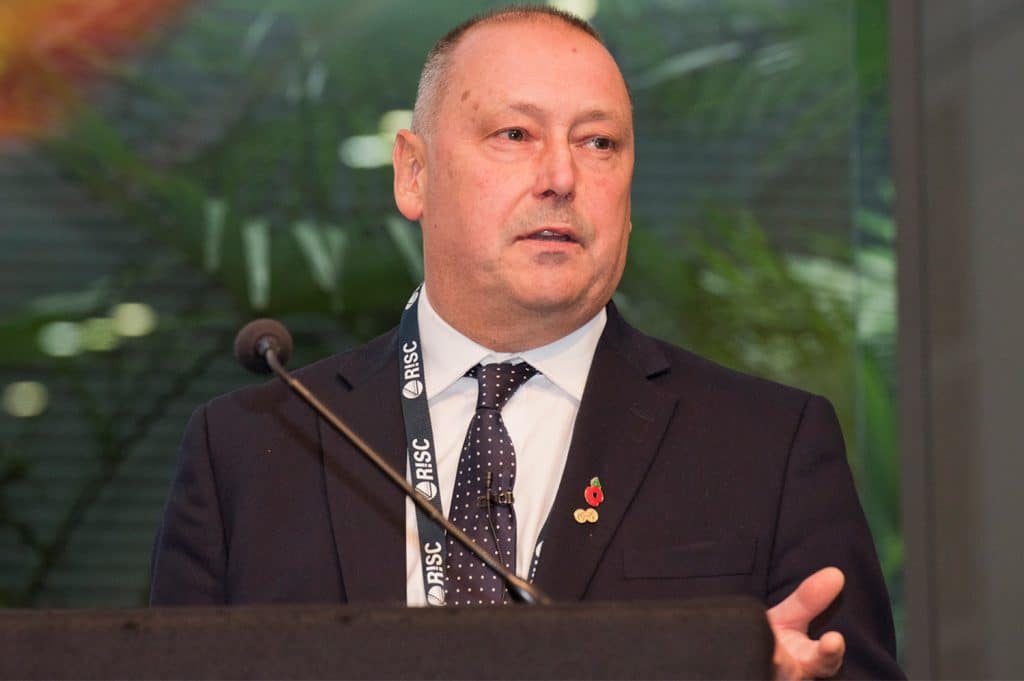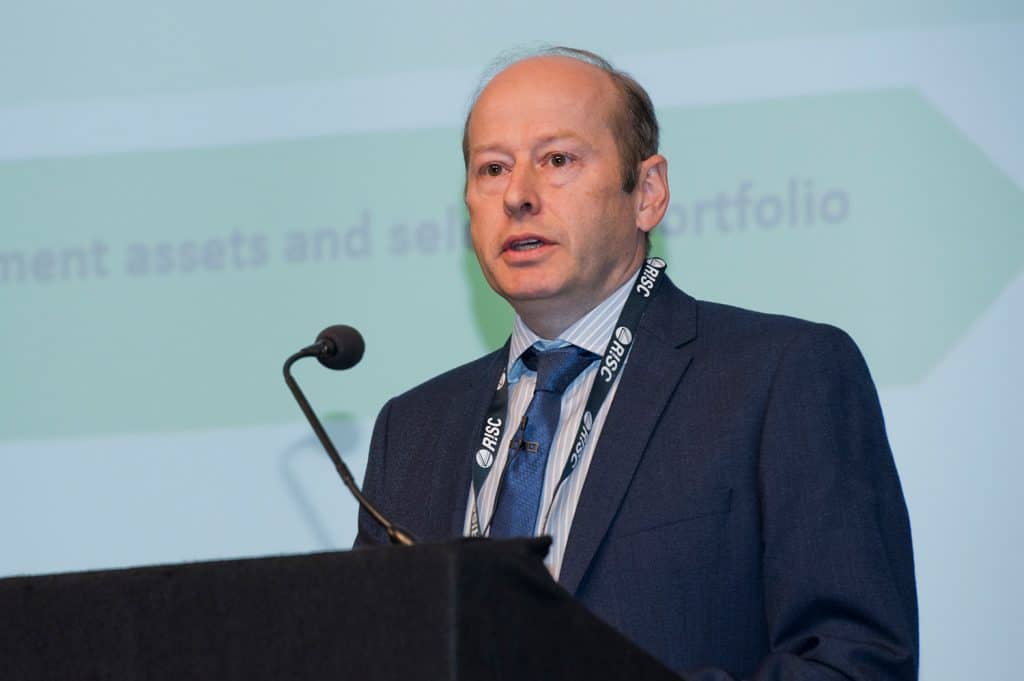On 29 October RISC sponsored and co-chaired the SPE Upstream Finance and Investments Conference held in London. Principal Reservoir Engineer Adam Borushek co-chaired event, which attracted an international audience from across the upstream industry and saw well respected speakers share insights on the issues within the oil and gas, finance and investments industries.
- SPE Conference Committee
- Adam Borushek, Principal Consultant, RISC Advisory
- Alistair Stobie, CFO, Hurricane Energy
- Shreyas Bordia, Managing Director, Citigroup
- Roy Kelly, Partner, Kerogen Capital
- Jonathan Roger, CEO, Siccar Point Energy
The successful event bought together like minded industry experts, who addressed the key topics in regards to the changing financial landscape within upstream oil and gas. Adam wrapped up the day with a post conference review of the highlights from the event.
Conference highlights
The day commenced with Hurricane Energy showing the changes in markets and sentiments in the industry, and how we may take advantage of transitions. He also described the current ‘gloom’ seen in some financial markets.
The same themes were picked up in the M&A&D session, but these sentiments were contrasted by the other speakers. Speakers from Tailwind Energy and Siccar Point Energy have taken advantage of the market timing, low competition for quality assets, and getting the right forms of capital to finance their strategies. 40% of the UK’s production is in the hands of private equity, an increase from only 5% a decade earlier. Citigroup reminded us that investors have always expected reliable returns on their capital, but now the pressures of increased ESG (Environmental, Social and governance) demands are reducing the number of attractive upstream investments.
Critical Resources showed that companies failing to maintain ESG standards have an increased risk of divestment, lower share price, or higher hurdles for new funding. In the European markets, ESG is not just a ‘nice-to-have’, but now a standard part of investment decisions, with over $30 trillion of assets invested using ESG criteria in 2018. Resource companies are under pressures to integrate ESG issues into their businesses. Io Consulting reported that emissions from oil and gas production represent a quarter of full lifecycle emissions. And BP introduced the Oil & Gas Climate Initiative which aims to use Carbon Capture, Usage & Storage (CCUS) to reduce CO2 emissions and meet the Net Zero aims of the UK by 2050.
Kerogen Capital stated that Private Equity funds have renewed interest in the North Sea E&P as for first time, the improved fiscal regime is the UK is better take than the US Gulf of Mexico. This was confirmed by Blue Water Energy who showed this region has more PE deals than anywhere else (outside the US) in recent years. Private Equity is investing heavily in developments, not just production. Terraoil Swiss said that although private investors seek very high returns, their long investment timeframe is less influenced by short-term cycles or events. Mercuria stressed the importance of integration and alignment between the funders and management teams, especially the views on risks, timing, using creative solutions, and exit strategies.
Petrofac gave a case study of a doubling in worker productivity delivered by using a digital twin model, combined with a digitisation of offshore work. PA Consulting reminded us to avoid the hype around disruptive digital technologies, to start small, and to focus on the problems being solved. EnQuest presented a case study where new technologies, improved workplace culture, and integrated planning all combined to extend the life of the mature Magnus field by 10 years. These factors also delivered increases in production and reductions in OPEX. OGUK introduced the Efficiency Task Force, to encourage and support a culture of collaboration across the industry.
To keep up to date with upcoming SPE Events head to the official website for more information. Adam will also be speaking at the upcoming ‘Intro to E&P‘ seminar on 28 November in London, secure your tickets now!
Back to previous page LinkedIn
LinkedIn Twitter
Twitter YouTube
YouTube